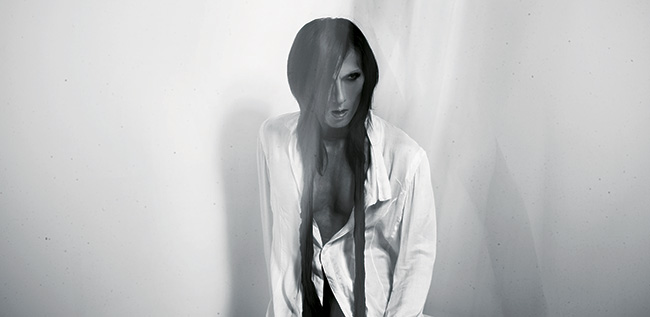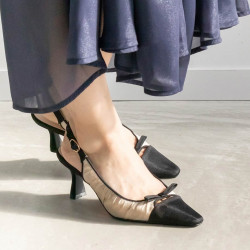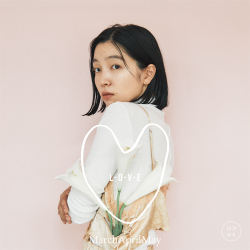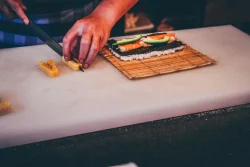
Originally published on metropolis.co.jp on February 2014

A misunderstood German poet once proclaimed that music must reconcile Apollo and Dionysus—logic and reason must collide with chaos and instinct to give birth to this ancient art. Over the last three decades, Morrie’s musical projects—notably the legendary Dead End and more recently the experimental Creature Creature—have been an attempt to balance these elements, fusing uplifting guitar harmonies with dark and philosophical lyrics. Metropolis engaged the influential rocker as he approaches his “Half Century Anniversary of Flesh” 50th birthday concert.
Currently, you are involved with Dead End and Creature Creature, as well as your solo pursuits. How do you differentiate these projects?
In Dead End, I am one-third of the sum. We all play a very equal part in the creations. Creature Creature is a time and space where I explore my ideas with other musicians. I have been working with most of the same members for five years, so I write with them in mind with voicing for two seven-string guitars, a five-string bass and drums. In the end, everything written for Creature Creature goes through my filter. I would say that in both bands I perform with similar intensity. Dead End is more centrifugal and the lyrics are explosive and outward. Our impetus has a kind of death drive. Creature Creature is more centripetal with lyrical content evoked by philosophical questions of being and what is “I.”
Of the younger Japanese musicians you’ve influenced, which ones are your favorites?
I like bands that make a sort of chemical reaction that goes beyond themselves: when each member brings something forth and the interaction creates something that exceeds expectations. I see this exciting phenomenon in some younger bands.
Some artists are motivated by the injustices they see in the world, others by personal struggles or beauty. What has been your most consistent inspiration over the years?
The most consistent inspiration are questions about the secret of being, the secret of “I.” It leads me to find companionship with the great philosophers. The answers and path are beyond good and evil, and beyond justice. Truth. The truth of us. The truth of language. What is beauty? What is being? What is “I”? I sense that this question cannot be eternally solved, but I am lured to these questions and am inspired by those who devote their lives to them.
When done right, there can be an almost ritualistic atmosphere to live musical performances. What is your approach?
The best performances for me are when I do not think or feel what I am doing on stage. I become the music. Those are the best moments for me, but ironically, I have little memory of what happens.
How well can your fans get to know the real Morrie through your music and lyrics?
Impossible. I don’t even know. There is no real Morrie.
You have been living in the U.S. since the ’90s. What are the most notable aspects of expat life for you?
When one is inside of something, one does not recognize what it is until one is away. Like in a dream, one does not know it is a dream until one awakens. Living outside of Japan has made me recognize and discover another Japan.
Who is your classical music composer of choice and why?
Wagner. Every time I listen to the prelude of Tristan and Isolde my body and spirit are transported. From the Baroque period—Bach. When I listen to Bach, I am not moved emotionally, but I am blown away to the end of the universe, especially listening to his fugues. Bach evolves in the silent space above like an enigmatic star.
Is there something about you that would surprise your admirers if they were to find out?
I cannot live without high-cacao chocolate.
What is the meaning of life?
To pursue the meaning of life is the meaning of life. Make life meaningful and fruitful in your own way.
Akasaka Blitz, Mar 4. See concert listings (popular) for details.







